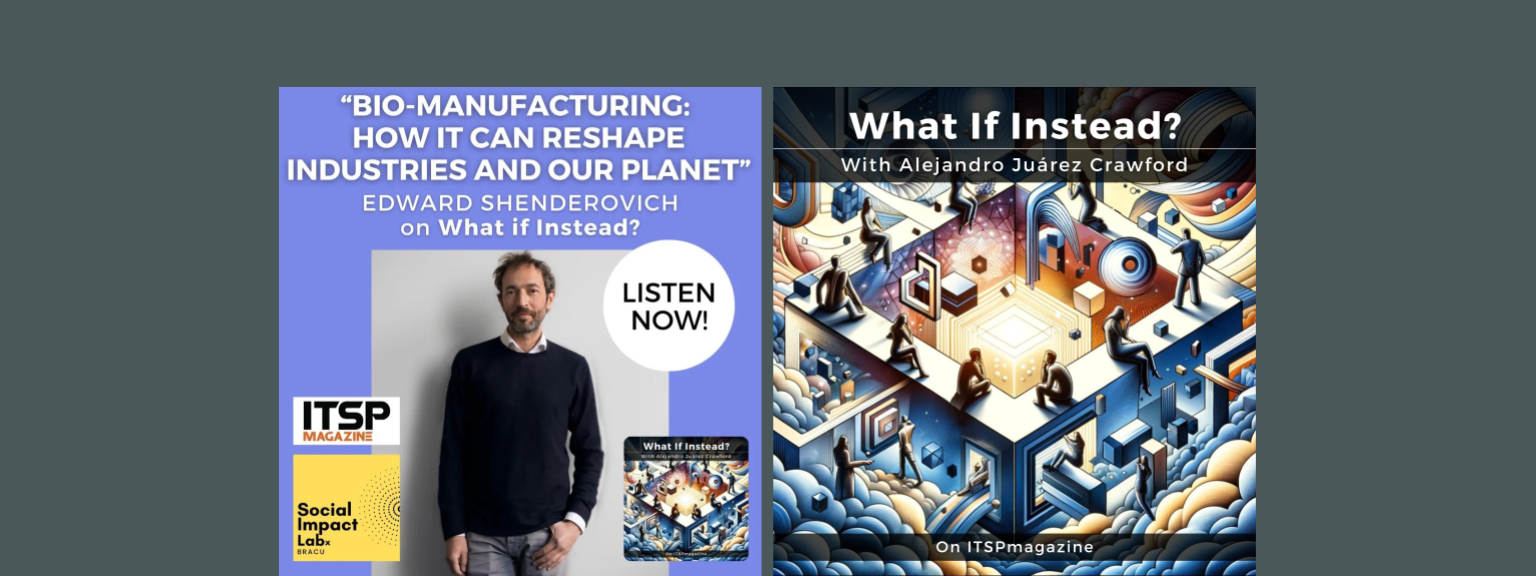To solve climate, bet on people close to problems
As the planet boils, SOLshare’s Sebastian Groh says we’ve got to stop looking to the usual suspects to get us out of our predicament.
In the new episode of What if Instead?, the leading energy innovator says the time to look to global power centers is long past. The only way forward is to build an army of climate innovators in the global South.
Can this be done? “I’m skeptical,” a journalist for a leading business periodical recently told one of our cohosts, in a private conversation.
Groh flips this skepticism on its head:
Do we want to see a Google-like giant solving climate change? And before everyone says, yes, let’s think this through…. we have this very quickly closing window until the end of this decade [before] things become irreversibly damaged. And irreversibly means irreversible.
To leave the current crisis to “the best and the brightest” in global power centers, he says, is hopelessly naive.
If we… leave the hope we have left in the hands of a few people, that’s more like a Hollywood scenario, and then… the miracle happens and then the world is rescued, which usually happens in the Hollywood movies, but this is reality.
I would have a very hard time in just being a passive observer and hoping that this “climate change Google” comes up.
We simply cannot afford this kind of magical thinking, Groh argues:
If we observe what is happening right now in terms of where the money goes, who receives the investment, it’s exactly this what the world is betting on right now. And I think this is very, very risky.
We’re hoping that that superhero understands a problem to an extent necessary to come up with this magical fix, which magically also then works for the whole world. And despite being actually very far away from that problem.
Please. So the superheroes, the ones we’re betting on are the people who are most insulated from the enemy at the gates.
The usual suspects are in no position to derive sufficiently innovative solutions, because they fail to understand the problems. He gives an example:
When we created the idea for SOLshare, we tried to develop the first product on Stanford campus. And my professor there was of Indian origin and we were designing the product and he went like, oh yeah, and then at 3 a.m., you know, I said we have the washing machine running that will be nice for the energy usage pattern. And I looked at him for a couple of seconds and he was like, when was the last time you were in an Indian village? There is no washing machine. And long story short, we didn’t get it done. And I tried more. I tried then in Berlin, where I was a PhD student in a graduate school.
Time to turn to people close enough to the problems to derive solutions.
The only time when we managed to get the first prototype out, which actually worked, was when we had hired engineers who came from villages in Bangladesh who didn’t have electricity, who really understood the problem.
That’s where the best fixes come from.
If you’re exposed to something every day, day in and day out, then you have a good understanding what this problem is. And probably whether you want it or not, you have spent time on trying to fix it.
And if these people are empowered, I think then we get the real good fixes.
Groh gives the example of Rindco Leathers, a new venture developed by a team of young people as part of a program he leads using the RebelBase platform. Rindco’s founders didn’t start out convinced they could launch a solution. Now they’re drawing interest from global funders. We need much more of this.
If we look at the allocation of financial resources, it is a very extreme skew not only towards what we call the West or Global North, but even to certain areas, like Silicon Valley,” Groh says. But it’s more than that: It’s also skills and community that help individuals with ideas find like-minded connections from which businesses grow.
Groh presages a concern the business journalist expressed, that local solutions are likely to tinker around the edges in the same old ways. It’s the exact opposite, he says:
And these are not necessarily only just simple, tiny local fixes. I think we try to prove that at SOLshare that it can have much more ripple effects and much more application potential where, and that’s the important part, that there can be a learning process from the global south to the global north.
Groh isn’t just writing ideas on a whiteboard. He just raised a follow-on venture round from SBK Tech ventures and is an Earthshot Finalist and winner of the Zayed Sustainability Prize. Yet when SOLshare launched the world’s first solar peer-to-peer trading grid, it did so, not in Silicon Valley, but in a remote Bangladeshi village.
Why is it so hard for people with resources to see that they should look to places like this? We’re stuck in a false assumption, one that’s entirely hamstrung our potential to innovate our way out of the crisis.
Which many people also don’t want to get in their head because they are still stuck in this, oh, these are the poor people. Oh, yeah. And they have climate change. Yeah. OK, let’s send them some money, which then is usually spent on consultants which come from that country who sends the money. And I mean, we all know how that story goes. And it’s pathetic. Right. So this needs to be thought completely differently. The people who are closest to the problems come up with the best solutions and those should be empowered.
And this is where the money should go, not the other way around. And that’s this big difference of one big climate change, Google, and Google is just a placeholder, obviously. Wouldn’t it be much better if we had a hundred thousand small experiments and hedge our bets around those with those who really understand the problem and see which of those experiments scale really big, ideally, but even if they don’t, they will fix real problems in their local soil, in their communities.”
What would it take to make the shift, given very little time now to work with?
Tune in to the episode to hear Sebastian’s answer.
What if Instead? is produced by Srijan Banik and the team at Social Impact Lab at BRAC University, which Banik founded. Cohosts Mim and Alejandro’s One Size Fits None: Time for an Entrepreneurial Revolution, is forthcoming from Emerald Publishing in summer 2025.


